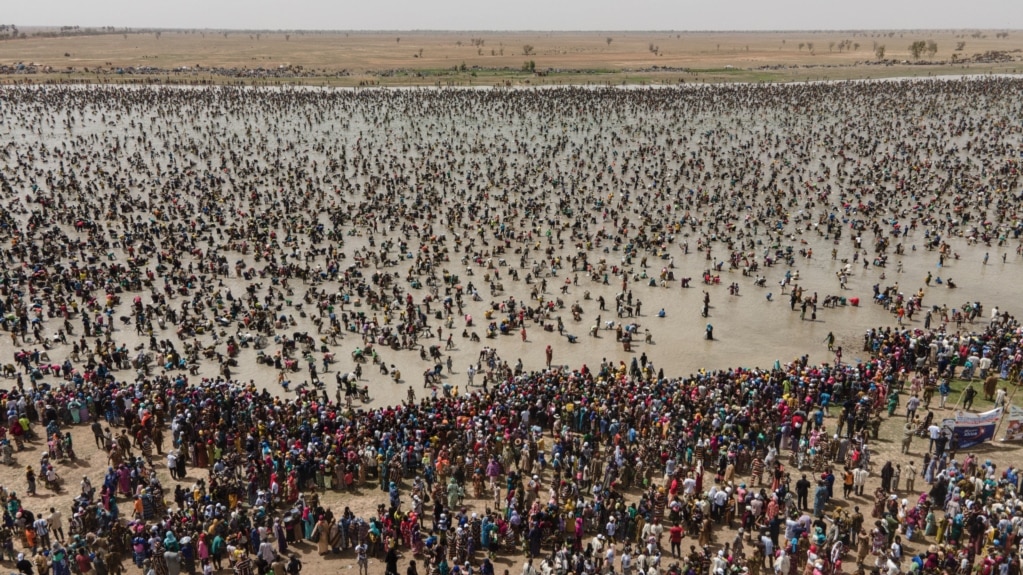Thousands of fishermen holding nets stood side by side. They waited for the signal. Suddenly, they rushed to a large area of water and threw in their nets, dropping to their knees in the mud. Soon after, one held up a fish the length of his arm.
For several hundred years, people have gathered in the town of San in southern Mali for Sanké mon, a collective fishing rite.
It begins with animal sacrifices and offerings to the water spirits of Sanké pond. The rite, with dancers and traditional costumes, is on UNESCO’s list of intangible cultural traditions. The list is meant to honor important places and activities to cultures around the world.
Climate change
The event celebrates the town’s founding and marks the beginning of the rainy season. But some people say climate change and heat waves are interfering with the tradition.
Sanké pond is starting to disappear, said a village chief, Mamadou Lamine Traoré.
A heat wave in Mali this year has also led to deaths. The heat wave began in March when many in the Muslim-majority country observed the Islamic holy month of Ramadan with fasting. Fasting means to deny oneself food for a period.
The Red Cross Red Crescent Climate Center said that limited data in Mali makes it impossible to know the number of heat-related deaths. But the group still estimates that the deaths this year have likely been in the hundreds, if not thousands.
World Weather Attribution is a nonprofit science group that looks at the effects of extreme weather.
In April, the group released a study. It said the latest heat wave in the Sahel, the area of Africa south of the Sahara Desert, is extreme.
The researchers said climate change has made high temperatures in Burkina Faso and Mali hotter by 1.5 degrees Celsius.
Experts have warned of more hot weather.
The future
At the latest Sanké mon collective fishing activity, men felt hot as they cooked chickens. A national flag waved on a weathered flagpole along the edge of the pond.
“This tradition was already established before I was born,” said Amadou Coulibaly, who remains faithful to it although there are growing difficulties.
When the rite was added to the UNESCO list in 2009, there were plans to dig deeper into the pond to prevent it from filling up with dirt, Traoré said. “But since then,” he explained, “nothing was done, and the pond is starting to create problems.”
He said, the pond’s disappearance would threaten not just the ancient fishing activity but also the town’s economic survival.
I’m Ashley Thompson.

